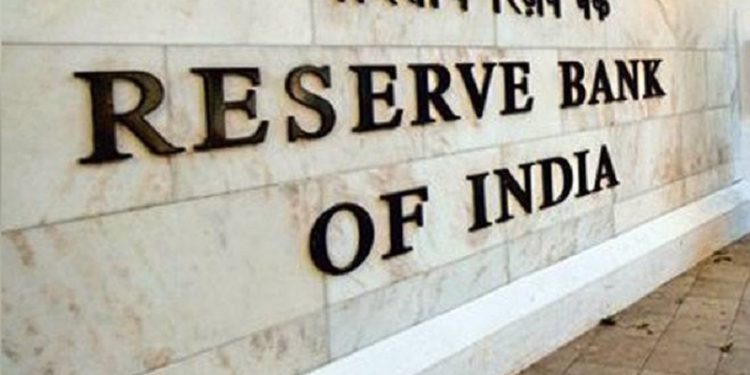Santosh Kumar Mohapatra
Ever since the nation embarked on the path of neo-liberalism, there has been a constant attempt by the ruling dispensations at the Centre to allow entry of business houses into the banking sector. The Reserve Bank of India (RBI) recently released a report of an Internal Working Group (IWG) headed by PK Mohanty which proposes to allow Indian corporate houses into the banking sector either directly as promoters or through the NBFC route. This is a continuation of the Modi government’s “pro-corporate neoliberal” economic policies.
Even when licenses to private banks were issued in the post-liberalisation period (in 1993 and 2001), big business houses were prohibited from getting licenses. The NDA government wants to abandon this long-standing policy. It is also quite contradictory to allow corporates to open banks when the government is expediting mergers of banks, closing branches under the spurious plea of building banking behemoths to compete with their global peers.
The last time (2013-14) when the RBI invited applications for new private banks, a host of corporates including Tata Sons; Aditya Birla Nuvo, L&T Finance Holdings, Reliance Capital, and IMACS Management Services Ltd had applied for permits.
The government’s latest move has drawn criticism from experts, who have red-flagged the risks associated with it. Rating agency S&P Global has said it was sceptical of allowing corporate ownership in banks given India’s weak corporate governance amid large corporate defaults over the past few years. Former Chief Economist of the World Bank Kaushik Basu dubs the decision as a good looking step in bad direction and may lead to crony capitalism.
Former RBI governor Raghuram Rajan and deputy governor Viral Acharya termed the proposal as a ‘bad idea’. While questioning the urgency and timing of the IWG proposals, they have cautioned that such an attempt will allow non-financial businesses to gain easy access to the sector and encourage connected lending.
Allowing corporate houses to set up banks is a retrograde step and will overturn the process of nationalisation of banking sector initiated by former PM Indira Gandhi. It is not a ‘big bang’ reform but just a surreptitious design to weaken the public sector banking system to help corporates take control over financial savings, just the way BSNL was destroyed so that the telecom sector could be overtaken by private companies especially Jio. It is a prelude to privatisation of the banking sector.
It should be recalled here that at the time of Independence, all banks in India were owned by business houses, but none came forward to help the government in its planned economic development projects. Bank nationalisation helped in expansion of branches in every nook and corner of the country and ensured credit flow to priority sectors like agriculture, small-scale industries, housing, and exports.
It is argued that corporates will be allowed as promoters albeit with conditions. The IWG has suggested significant amendments to the Banking Regulation Act, 1949 to prevent connected lending and exposures between banks and other financial and non-financial group entities. This is aimed at increasing the RBI’s powers and strengthening the supervisory mechanism for large conglomerates. However, if comprehensive regulation and supervision were only a matter of legislation, India would not have an NPA problem and collapse of private banks. Governance is frail in India. Moreover, regulators can succumb to either political pressure or the urgency of the moment.
The foremost problems before the banking sector are mammoth NPAs, the massive scale of banking frauds, huge bad loan write-off, surplus liquidity, closure of rural branches. Banks now need capital infusion by the government which is low as a percentage of GDP in India as compared to other countries. Handing banks to corporates will not solve the above problems rather exacerbate the situation.
There is a strong reason for not inducting corporate houses in the banking industry with significant conflicts of interest. Corporates are basically borrowers from banks. They will divert funds to concerns which they have an interest in and will try to push down lending rates arbitrarily. Also, the risk of contagion from corporate defaults to the financial sector will increase significantly. It will further exacerbate the concentration of economic and political power in certain business houses. In other words, allowing industrial houses to own banks would allow them to corner the bulk of the credit for their own businesses through connected lending. It will be impossible to assess risks and regulate the banking sector in such a scenario. Moreover, it will be affected by cronyism. That is why, many countries, including the United States, prohibit industrial houses from operating banks. South Korea prohibited industrial houses from promoting new banks following the financial crisis in 1997.
If banks are owned by corporates, it will lead to overleveraging. A highly leveraged banking system can lead to unstable dynamics and downward spirals. Numerous studies confirm the understanding that the US financial crisis of the years 2007–09 and the subsequent great recession was caused by excessive leveraging of the US banking sector, its exposure to the US real estate sector. Many private and foreign banks have been responsible for highly imprudent and speculative practices. Overleveraging occurs when a business has borrowed too much money and is unable to pay interest payments, principal repayments, or maintain payments for its operating expenses due to debt burden.
In contrast, the Indian banking sector – dominated by the public sector banks – has successfully withstood the global financial crisis. In the light of the global financial crisis sparked off in 2008 by the profligacy of private banks and financial speculation, allowing corporates in banking sector in India is an illogical decision.
India’s financial landscape is blotted by scams involving big businesses, big failures of private banks like Centurion Bank of Punjab, Global Trust Bank, Bank of Rajasthan, Times Bank, Yes Bank and most recently, Lakshmi Vilas Bank. What is noteworthy is that private banks in crisis are rescued by public sector banks. Banks run by businesses will increase the scope for financial malpractices. The growth of savings will be affected and thereby our savings economy.
The author is an Odisha-based economist and columnist.






































